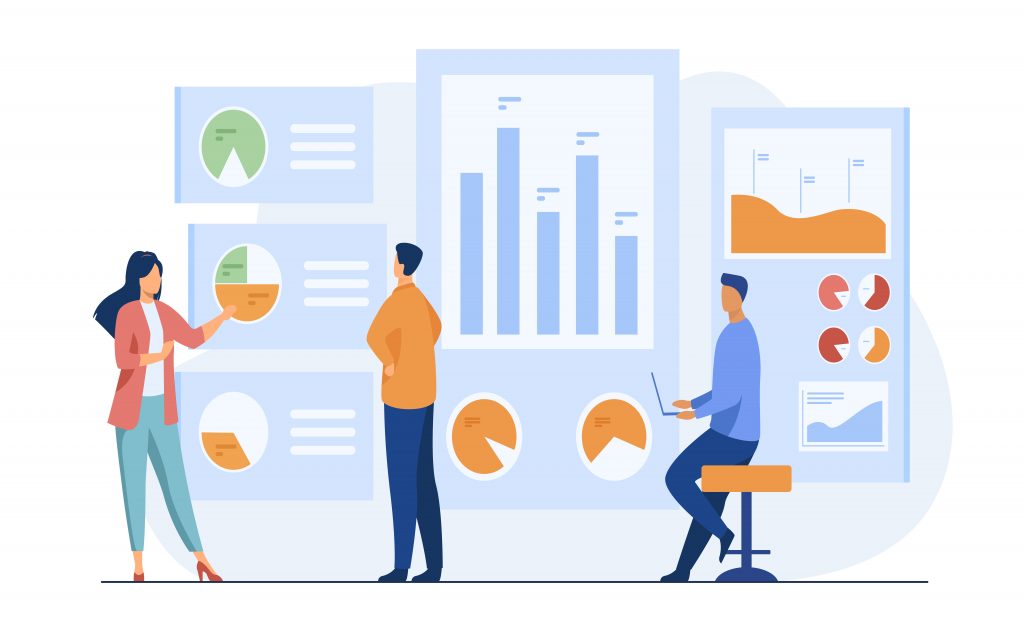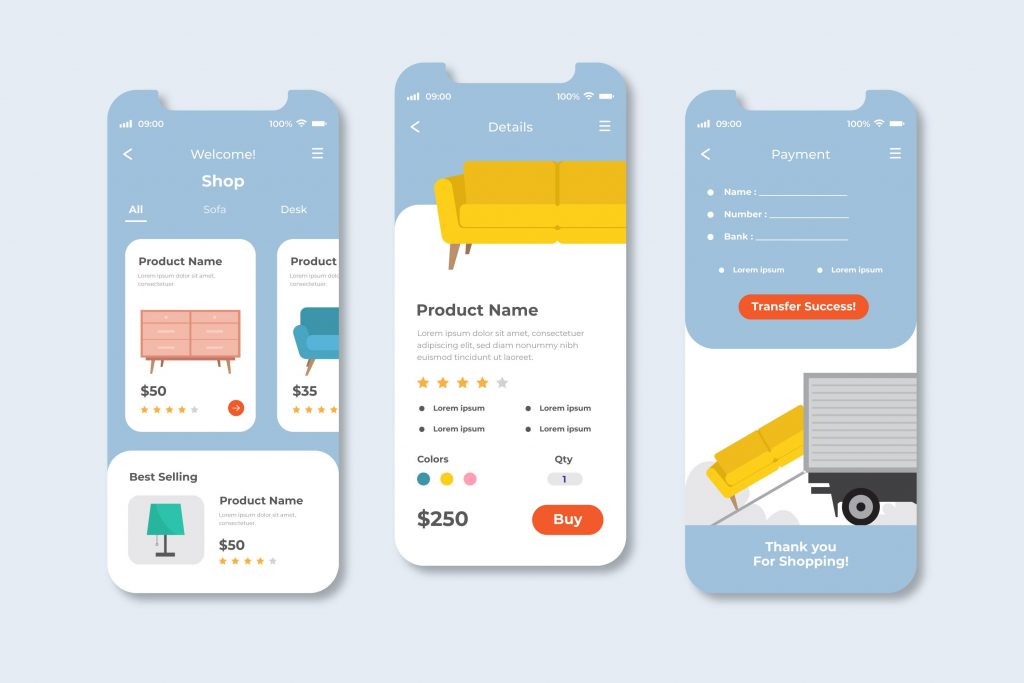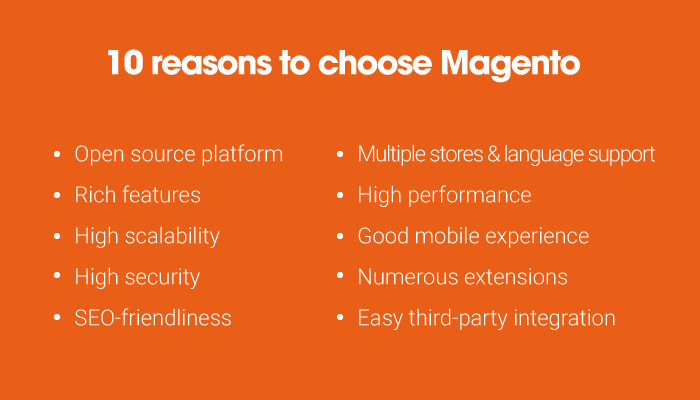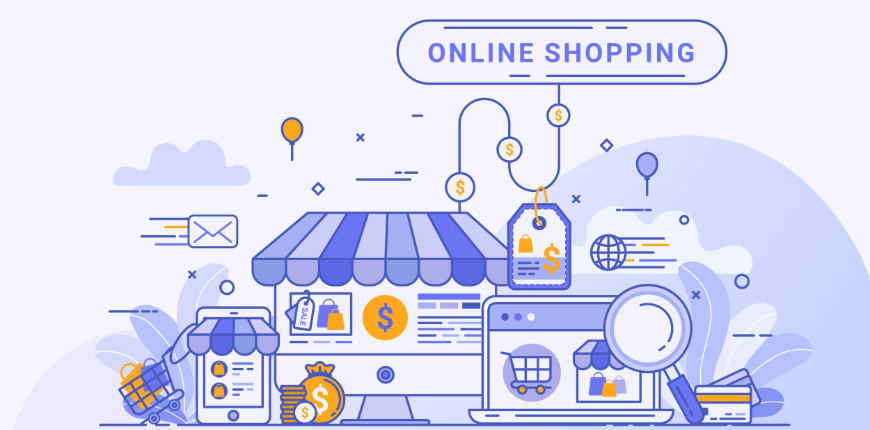No matter how urgent it’s to start ecommerce website development, there are some essential things to note before doing it!
Merchants who are loyal to brick-and-mortar stores need to know this: As much as 95% of shopping will be facilitated by ecommerce by the year 2040, stated Nasdaq in 2017.
There’s no doubt that ecommerce will not only be a temporary trend; it’s the future of commerce. Accordingly, traditional merchants should also prepare to fall in line with modern trading in an online store.
If you haven’t had one yet, don’t leave this post to fill yourself with important things to note before starting your ecommerce journey. Also, don’t start eCommerce website development before you read.
I – 9+ Steps to Prepare for Ecommerce Website Development Process
Table of Contents
1.1 Determine what you are going to sell & research competitors

More than the very first step of web development for ecommerce, to determine what to sell can make or break your success if there’s no in-depth market research. Many people root their ideas from a real passion and transform them into a real business. But whatever products you are going to sell, they should help buyers to solve existing problems.
Besides, a businessman should be sensitive to the trends that have come and gone. And sometimes, customers’ existing demands are not everything you can exploit.
The potential sale volume varies from different products and services, which decides how competitive a market is. This is another aspect you have to think about. A space with a lot of heavy players is not the choice for small merchants, whose marketing budget is tight. If you pursue something that many merchants also sell, you must offer strong USPs (unique selling points).
1.2 Determine your ecommerce business model
You may want to offer your products to end-users or buyers who represent an organization to purchase under a large quantity. This is why it comes to determining your business model. There are several models defined in ecommerce but most online stores fall into the two main types: B2C and B2B.
- B2C (Business to Customer): In this model, your products/services are offered directly to end-users without third-parties involvement. So far, Amazon is the biggest ecommerce website that applies the B2C business model.
- B2B (Business to Business): Unlike the B2C model, this model refers to transactions between businesses rather than business to individual customers. For this type, Alibaba stands in the first position to be the most successful name.
1.3 Sketch your customers

Whether your online store is specific for fashion, accessories, furniture, high-tech, tourism, or heavy industry, it’s important to specify a customer segmentation in which consumers have reasons to choose you or you can satisfy the market better than competitors do.
Through this step, you will help an overview of:
- The demographic features of potential customers: background, age, range of income, etc.
- What problems are they facing?
- What are their potential/unsatisfied needs?
Understanding potential customers will help you build a stronger connection with them and create a personalized experience to their tastes and needs.
1.4 Specify branding factors
The most critical branding factors you have to define are your brand name, logo, and color palette. All of these different elements come together into a user experience driven by the brand’s personality.
It’s recommended to choose a unique, original, and short name that distinguishes your brand from other businesses. A distinctive brand name will allow you to have a better shot at getting your ideal domain name.
Along with the brand name, a logo and color combination has a superior power to capture customers’ minds when they think about a business. An effective, memorable logo can help your brand appear on customers’ minds whenever they see it, even if the brand name is not included. And a complicated logo is not a wise idea because it’s hard to remember.
1.5 Learn from other websites for inspiration

Competitors’ websites are places to get inspired for web design and experience the UX/UI. This behavior supports you to imagine how customers should experience your website and what points of their websites you want to improve on yours.
Here are some questions you can ask yourself when looking at different ecommerce websites:
- Where does the design catch your eyes first?
- Do their CTAs appeal to you?
- How do they use social proof to gain reliability?
1.6 Determine key deliverables
After learning from other websites of the same industry or others, it’s important to note down key deliverables, including outcomes, elements, and features that you want to see on yours.
By answering these questions, this task will become easier:
- How do you want customers to flow the ordering process?
- How do you want customers to browse your products?
- How does your website should be to encourage conversion?
- What elements will your website need according to each of the above questions?
1.7 Register a domain name
Once you have a brand name for your ecommerce site, you should go ahead and register a domain name soon. You can even do it before starting the ecommerce website development process. If you try waiting more, you cannot be sure if the perfect domain name you have in mind stays available until you register to own it.
1.8 Choose the right ecommerce platform
Online merchants nowadays have various choices of ecommerce platforms to start web development for ecommerce. This diversity has made confusion in freshers to choose between Magento, Shopify, WooCommerce, and so forth.
Each platform has its own perks and there are no exact standards for the best one. Yet, here are the most critical points you should consider when choosing the right ecommerce platform?
- Cost to use: For those who’ve just entered the ecommerce world, budget is one of the top concerns. In our experience, we’ve seen that most small business owners had a limited budget at the beginning. An ecommerce platform with a friendly cost plan, for that reason, would be a plus.
- Scalability: Every merchant expects their business to scale up over time. To allow this, it’s crucial to choose a platform that you can scale to your business size without significant performance issues.
- Features: Features of different platforms are not similar. Besides basic ecommerce functionalities, some platforms also provide users with built-in marketing tools like newsletters, abandoned cart emails, reward programs, daily deals, etc. The more features a platform supports, the more things you can do without additional integrations.
Magento and Shopify are the two most popular ecommerce platforms that power hundreds of thousands of users around the world.
COMPARE Magento vs Shopify to know which one is suitable for you!
1.9 Hire an ecommerce website development agency

Finally, just find a reliable ecommerce web development agency that works on the chosen platform to build a website from scratch. It’s not necessary to hire a top-notch or world-class agency for the best quality. There’re still agencies that offer a quality development service at very affordable charges.
Some agencies work with different platforms. However, an agency that specializes in the only platform like Magento, for example, should be considered because they focus their resources to become a pro on it.
>> CHECK OUT our Offshore Development services if you need a dedicated team to go with you!
II – The Best Ecommerce Platform for Ecommerce Web Development

Depending on various factors – such as the business’s current and future needs, scale, and budget – each merchant will make their own choice of an ecommerce platform. In this post’s range, we’ll spend more time on one of the most popular open-source platforms.
2.1 An introduction to Magento
When it comes to web development for ecommerce, Magento is one of the most popular platforms acquired by Adobe. As of 2020, the number of active ecommerce sites using Magento reaches over 250,000, with nearly 5000 downloads every day. The US, UK, and Germany are the three countries with the largest number of Magento websites.
First introduced in 2007 by Varien, Magento is an open-source using PHP scripting language on Zend Framework. It has continuously developed into various products and versions, providing almost all functionalities and tools to create an ecommerce website. With the availability of two Magento editions, businesses of different needs and budgets can select the optimal option to start building a website:
- Community Edition (CE): This edition is free to download with all basic features to build an online store.
- Enterprise Edition (EE): The EE includes premium features and requires an annual charge.
GET A BASIC UNDERSTANDING via Everything You Need to Know about Magento!
2.2 Why are 250.000+ ecommerce sites using Magento?

- Cost to use: As mentioned, Magento offers the Community Edition with free of charge. Therefore, small business owners with a tight budget may want to take advantage of this point to create a basic but complete ecommerce website. If you want to add more features, it’s not difficult to find affordable third-party extensions that include the features you need.
- Optimal scalability: Magento has become a good choice of many large-scale businesses like Coca-Cola and Ford because of its great scalability. That means if you continue to add more products, there’s no significant decline in performance. Optimal scalability:
- Rich features: All the general and exclusive features (available in EE) give merchants the ability to create sites that provide an unrivaled shopping experience. Read more about Magento’s features here.
- Community support: Magento is supported by a massive global network of more than 1,150 solution and technology partners and by a highly active community of more than 300,000 developers. It also offers the world’s largest marketplace for powerful extensions that facilitate Magento stores with expanded features.
Besides those features, users have found more reasons to love this ecommerce platform, such as high performance, high security, SEO-friendliness, etc.
TAKE A NOTE of 10+ Biggest Reasons Why You Should Choose Magento for a detailed explanation.
2.3 Estimate costs for Magento ecommerce development
When it comes to building a website, cost information is one of the most important things that business owners should be curious about and plan for. To make it easy for businesses to estimate the total cost for a Magento website, we’ve categorized possible costs into three groups below. Each cost varies from specific cases depending on different requirements and selected services.
- Imperative costs to build a Magento website with basic features
- Costs for additional integrations (shipping, payment method, CRM, ERP, etc.)
- Maintenance costs
BUILD YOUR BUDGET PLAN with All Must-Know Magento Costs to Build A Basic to Custom Magento Website!
2.4 Hire trusted Magento ecommerce development company
If you are one of the people opting for Magento, congratulations! This means you will soon become a part of the vast community of Magento users that can find support everywhere. So, don’t worry about how to start.
Being a certified Magento partner for years, BSS Commerce has worked on more than 500 successful projects and satisfied over 21,000 clients worldwide. We’re so proud to be a Magento ecommerce development company that clients can rely on with a high quality of coding.
SEE OUR PREVIOUS WORKS with some of successful Magento Website Development projects now!

(An example of our BSS Commerce’s Magento Website Development project)
Not only help online merchants to develop Magento 2 websites, but we also provide comprehensive solutions to every issue it might face in the long run, including:
- Maintenance
- Module Creation & Customization
- Code Audit
- On-demand Testing
- Speed-Up Consulting
Wrap Up
In this article, we have mentioned all the things that can help freshers to start eCommerce website development.
We hope this blog is helpful and good luck to you!
BSS Commerce is one of the leading Magento extension providers and web development services globally. With experienced and certified Magento developers, we commit to bringing high-quality products and services to optimize your business effectively. Furthermore, we offer FREE Installation – FREE 1-year Support and FREE Lifetime Update for every Magento extension.
CONTACT NOW to let us know your problems. We are willing to support you every time.
